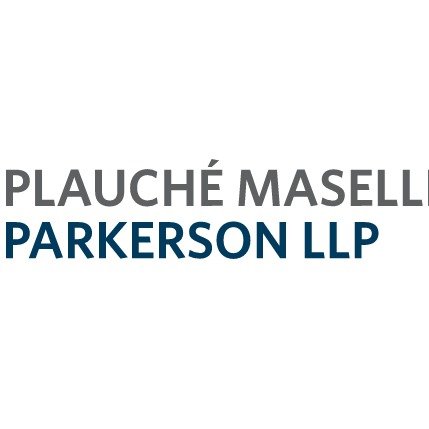Best Land Use & Zoning Lawyers in New Orleans
Share your needs with us, get contacted by law firms.
Free. Takes 2 min.
Free Guide to Hiring a Real Estate Lawyer
List of the best lawyers in New Orleans, United States
About Land Use & Zoning Law in New Orleans, United States
Land use and zoning laws in New Orleans, United States, play a crucial role in shaping the city's physical and economic landscape. These laws determine how land can be used, including the types of buildings that can be constructed, their purposes, and their locations. In New Orleans, land use planning is particularly important due to the city's unique geography, historic neighborhoods, and cultural richness. Zoning regulations are established to balance these factors, ensuring both development and preservation. Local land use policies are implemented to control urban sprawl, encourage sustainable development, and protect heritage sites within the city.
Why You May Need a Lawyer
Seeking legal advice in the field of land use and zoning might be necessary for several reasons. If you are a property owner, a developer, or a resident in New Orleans, you may encounter situations such as:
- Seeking variances or special exceptions to zoning ordinances.
- Understanding and complying with local building codes and regulations.
- Resolving disputes with neighbors or governmental bodies regarding land use.
- Challenges related to environmental regulations and their impact on your property.
- Engaging in land development projects that require navigation of complex zoning processes.
- Addressing issues related to historic preservation zoning in specific districts.
In these cases, a lawyer specializing in land use and zoning can provide valuable assistance, helping you to understand the legal landscape, ensure compliance, and effectively advocate for your interests.
Local Laws Overview
New Orleans has specific zoning laws and ordinances that serve as a framework for land use management. The Comprehensive Zoning Ordinance (CZO) is the primary legal document governing land use in the city. It designates various zoning districts, each with specific rules about use, density, height, and setbacks. Historical preservation is a major concern, and many areas fall under separate guidelines managed by the Historic District Landmarks Commission (HDLC).
Environmental legislation is also a key component of land use law in New Orleans, reflecting the need to adapt to flood risks and conserve the regional ecosystem. Regulations such as the Coastal Zone Management Program might apply to certain areas.
The city's zoning code also addresses contemporary issues like short-term rentals, aiming to regulate their impact on residential neighborhoods. Therefore, familiarity with both the general zoning laws and specifics related to your district can be crucial.
Frequently Asked Questions
What is zoning?
Zoning refers to municipal laws that govern the use of land within certain areas. These laws divide the city into various zones, such as residential, commercial, or industrial, each with its own regulations.
How do I determine the zoning classification of my property?
The zoning classification of your property can be found through the city's official planning and zoning resources or by contacting the New Orleans City Planning Commission.
Can I change the zoning of my property?
Changing the zoning of a property, known as a zoning change or rezoning, typically requires applying to the city's Planning Commission and possibly appearing before the City Council for approval.
What is a zoning variance?
A zoning variance is a request to deviate from the current zoning requirements for a property. Variances must be approved by the Board of Zoning Adjustments (BZA) and are typically granted when strict application of the zoning laws would cause undue hardship.
What should I do if I want to build on my property?
You should ensure that your planned construction complies with the zoning laws, building codes, and any applicable covenants. Obtaining necessary permits from the city's Department of Safety and Permits is essential.
Are there regulations for historic properties?
Yes, New Orleans has stringent regulations for historic properties and districts. These are overseen by the Historic District Landmarks Commission (HDLC), which must approve changes to structures within historic areas.
What are the consequences of violating zoning laws?
Violations of zoning laws can result in fines, orders to cease and desist certain activities, or even legal action. It is important to comply with local zoning regulations to avoid these penalties.
How are environmental concerns addressed in zoning law?
Environmental factors, such as flood risk and ecological preservation, are significant considerations in the zoning process. Regulations may restrict construction in certain areas or require specific mitigation measures.
What role does the community play in the zoning process?
The community can participate in public hearings, which provide an opportunity to express support or concerns regarding proposed zoning changes or development projects.
How does zoning affect property values?
Zoning can impact property values by influencing the types of development and infrastructure investments in an area. A well-zoned area can enhance property values, while mismanaged zoning might have the opposite effect.
Additional Resources
If you need further information or assistance with land use and zoning matters, the following resources may be helpful:
- New Orleans City Planning Commission: Provides resources and guidance on zoning regulations and land use planning.
- New Orleans Department of Safety and Permits: Handles building permits and ensures compliance with building codes.
- Historic District Landmarks Commission (HDLC): Manages preservation efforts and regulations for historic properties.
- Louisiana Land Use Commission: Offers information on statewide land use policies and regulations.
- Local legal aid organizations: Can provide free or reduced-cost legal assistance to qualify individuals.
Next Steps
If you believe you need legal assistance with land use and zoning in New Orleans, consider taking the following steps:
- Research and identify lawyers or law firms specializing in land use and zoning in New Orleans.
- Gather relevant documents and information about your property or case to provide during consultations.
- Schedule a consultation to discuss your situation, understand your options, and evaluate potential legal strategies.
- Engage a qualified attorney to help navigate the complexities of zoning laws and represent your interests.
By being informed and seeking appropriate legal counsel, you can ensure you are making the best decisions regarding land use and zoning issues in New Orleans.
Lawzana helps you find the best lawyers and law firms in New Orleans through a curated and pre-screened list of qualified legal professionals. Our platform offers rankings and detailed profiles of attorneys and law firms, allowing you to compare based on practice areas, including Land Use & Zoning, experience, and client feedback.
Each profile includes a description of the firm's areas of practice, client reviews, team members and partners, year of establishment, spoken languages, office locations, contact information, social media presence, and any published articles or resources. Most firms on our platform speak English and are experienced in both local and international legal matters.
Get a quote from top-rated law firms in New Orleans, United States — quickly, securely, and without unnecessary hassle.
Disclaimer:
The information provided on this page is for general informational purposes only and does not constitute legal advice. While we strive to ensure the accuracy and relevance of the content, legal information may change over time, and interpretations of the law can vary. You should always consult with a qualified legal professional for advice specific to your situation.
We disclaim all liability for actions taken or not taken based on the content of this page. If you believe any information is incorrect or outdated, please contact us, and we will review and update it where appropriate.















